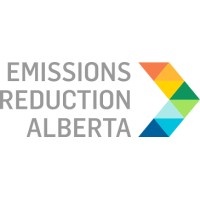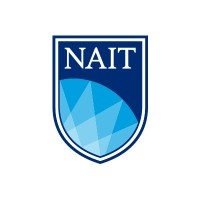
Open
Carbon Capture Kickstart
Last Update: December 2, 2025
Calgary, AB
Funding pre-construction studies for industrial carbon capture projects in Alberta
Grant and Funding
At a glance
Funding available
Financing goals
Reduce the ecological footprint
Integrate new technologies
Develop an online presence
Eligible Funding
- Maximum amount : 5,000,000 $
- Up to 10% of project cost
Timeline
- Unspecified
Eligible candidates
Eligible Industries
- Mining, quarrying, and oil and gas extraction
- Utilities
- Manufacturing
- Public administration
Location
- Calgary
Legal structures
- Non-profit
- Public or Parapublic institution
- For-profit business
Annual revenue
- All revenue ranges
Organisation size
- All organization sizes
Audience
- All groups
Non-profit candidates
Sector of operation
- Research
- Environment
- Economic, Social and Community Development
- Employment and Training
Target groups
- Business owners / entrepreneurs
- Nonprofits / charities
- Academia / students
Revenue structures
- All structures
Scope
- Municipal
- Provincial
- National
Overview
The Carbon Capture Kickstart program provides up to $5 million per project to support pre-construction studies for large-scale carbon capture, utilization, and storage (CCUS) initiatives in Alberta. This funding aims to accelerate the development of industrial carbon capture technologies, focusing on design, engineering, and feasibility studies rather than capital costs.
Activities funded
- Pre-construction studies for facility-specific carbon capture projects across major industrial sectors.
- Design and engineering of industrial-scale carbon capture and transportation technologies.
- Feasibility studies for CCUS (carbon capture, utilization, and sequestration) integration at large emitter sites.
- Evaluation of onsite carbon capture, direct air capture, direct carbon conversion, or strategic CO2 transportation infrastructure for industrial facilities.
Examples of admissible projects:
$ 2,500,000
Installation planning for direct carbon conversion facility
$ 4,500,000
Pre-construction design of a CO2 transportation pipeline network
$ 3,500,000
Engineering studies for the retrofitting of an existing power plant with CO2 capture technology
$ 4,000,000
Feasibility study for direct air capture technology installation
$ 3,000,000
Design and engineering of an onsite carbon capture system for a manufacturing plant
$ 5,000,000
Developing strategic CO2 transportation infrastructure between cities and surrounding industrial areas
Eligibility
- The applicant must be an organization operating in Alberta, including technology developers, industry operators, industrial associations, small and medium-sized enterprises (SMEs), municipalities, or post-secondary and research institutions.
- The project proposal must target a specific, existing large final emitter site in Alberta, from sectors such as power generation, cement production, industrial manufacturing, oil and gas, or similar industries.
- The proposed project must be focused on pre-construction design and engineering for onsite carbon capture, direct air capture, direct carbon conversion, or strategic CO2 transportation infrastructure.
- The technology proposed must be at a sufficient stage of technical and commercial readiness suitable for commercial-scale projects at an actual industrial site.
- The applicant must commit to knowledge sharing by publishing study outcomes and collaborating with ERA and other funding recipients.
Who is eligible?
- Technology developers
- Industry operators
- Industrial associations
- Small and medium-sized enterprises (SMEs)
- Municipalities
Who is not eligible
Based on the provided information, there are no explicit restrictions mentioned regarding the types of companies or industries that are not eligible for this grant. The context does not specify any particular sectors or company statuses that are excluded from applying.
Eligible expenses
- Pre-construction design and engineering study costs related to carbon capture, utilization, and sequestration (CCUS) technologies.
- Expenses for feasibility assessments and technical studies for onsite carbon capture, direct air capture, direct carbon conversion, and CO2 transportation infrastructure.
- Consulting and professional fees associated with conducting studies and preparing required reports.
- Costs related to final outcomes reports and knowledge-sharing activities as specified by the funding requirements.
Eligible geographic areas
- Large final emitter sites located in Alberta.
Selection criteria
- Demonstrated incorporation of learnings from previous CCUS projects or studies.
- Clarity on how the funded study will provide transferrable knowledge for future projects.
- Commitment to publicly sharing study outcomes and key results, considering confidentiality requirements as needed.
- Active participation in knowledge sharing activities such as roundtables and public events.
- Provision of thorough post-project reports detailing outcomes and achievements, including environmental and economic benefits.
How to apply
1
Review Guidelines and Resources
- Read the Call for Expressions of Interest Guidelines to understand the scope and requirements.
- Attend informational webinars for detailed insights.
- Refer to Eligible Expense and Cost Instructions to prepare your budget.
- Review the Privacy, Confidentiality, Data, and Security Policy to ensure compliance.
- Check the Frequently Asked Questions section for additional clarity.
2
Conduct Preliminary Research
- Assess your project's alignment with provincial and federal funding priorities.
- Identify potential partnerships and collaborations with Alberta's post-secondary and research institutions.
- Evaluate your project's feasibility in terms of technical and commercial readiness.
3
Prepare Your Proposal
- Develop a comprehensive study plan that demonstrates advancement beyond the current state.
- Include specific details on how the project will incorporate learnings from previous CCUS projects.
- Ensure the study targets existing large final emitter sites in Alberta.
- Compile all required documentation to support your proposal, focusing on GHG reductions and other benefits.
4
Submit Your Application
- Complete the application form, ensuring all sections are accurately filled out.
- Upload all required documents via the designated submission portal before the deadline.
- Ensure acknowledgment of receipt from the submission system.
5
Participate in the Review Process
- Engage with evaluators as required during the review process.
- Be prepared to provide additional information or clarifications if requested.
6
Await Decision
- Monitor communications for updates and decisions regarding your application.
- Prepare to commence the project upon approval following outlined conditions and timelines.
Additional information
- Recipients must publicly share final outcomes reports to benefit the broader Alberta community.
- Participation in annual confidential roundtables and public lessons learned events is required.
- Knowledge gained from funded studies is intended to inform future investment decisions and public policy.
- Some selected projects may also receive additional federal funding through Natural Resources Canada.
Apply to this program
Frequently Asked Questions about the Carbon Capture Kickstart Program
Here are answers to the most common questions about the Carbon Capture Kickstart. This section explains what the program is, how much funding is available, eligibility requirements, application deadlines, and other important details to help you determine if this grant is right for your business.
What is the Carbon Capture Kickstart?
How much funding can be received?
Who is eligible for the Carbon Capture Kickstart program?
What expenses are eligible under Carbon Capture Kickstart?
Where is the Carbon Capture Kickstart available?
Is the Carbon Capture Kickstart a grant, loan, or tax credit?
Who are the financial supporters of the Carbon Capture Kickstart?
Apply to this program
More programs like this

Grant and FundingOpen
Capital Retrofits
Government of AlbertaFunding for non-emitting industrial retrofits reducing energy use and emissions

Grant and FundingOpen
Energy Management Information Systems (EMIS)
Government of AlbertaFunding for systems using energy data to reduce waste and costs

Grant and FundingOpen
Alberta Carbon Capture Incentive Program (ACCIP)
Government of AlbertaSupports carbon capture projects for emissions reduction in Alberta

Partnering and CollaborationGrant and FundingClosed
Genomic Innovations: Energy and Environmental Solutions
Genome AlbertaSupports genomics-driven solutions for energy and environmental sectors

Researchers And FacilitiesPartnering and CollaborationGrant and FundingClosed
Project Seed Funding in Grid Innovation
Northern Alberta Institute of Technology (NAIT)Supports Alberta SMEs advancing innovations in energy grid modernization

Grant and FundingOpen
Regional Homebuilding Innovation Initiative (RHII) in the Prairie Provinces
Prairies Economic Development Canada (PrairiesCan)Supports innovative housing solutions and residential construction sector innovation

Partnering and CollaborationGrant and FundingClosed
Genomic Applications Partnership Program (GAPP) — Alberta
Genome AlbertaFunding support for commercializing genomics research innovations in Canada

Grant and FundingWage Subsidies And InternsClosed
Host a municipal intern
Government of AlbertaSupports municipalities hosting interns for capacity building and training

Tax CreditsOpen
Alberta Agri-Processing Investment Tax Credit (APITC)
Government of AlbertaTax credit for large investments in Alberta agri-processing facilities

Grant and FundingClosed
ERA — Advanced Materials Challenge
Emissions Reduction Alberta (ERA)Advanced Materials Challenge funds low-emissions, circular economy projects
Sign up to our platform to access the Carbon Capture Kickstart information sheet for free
Get access to 4,000+ programs, practical guides, personalized alerts, and an AI assistant to support your grant applications.